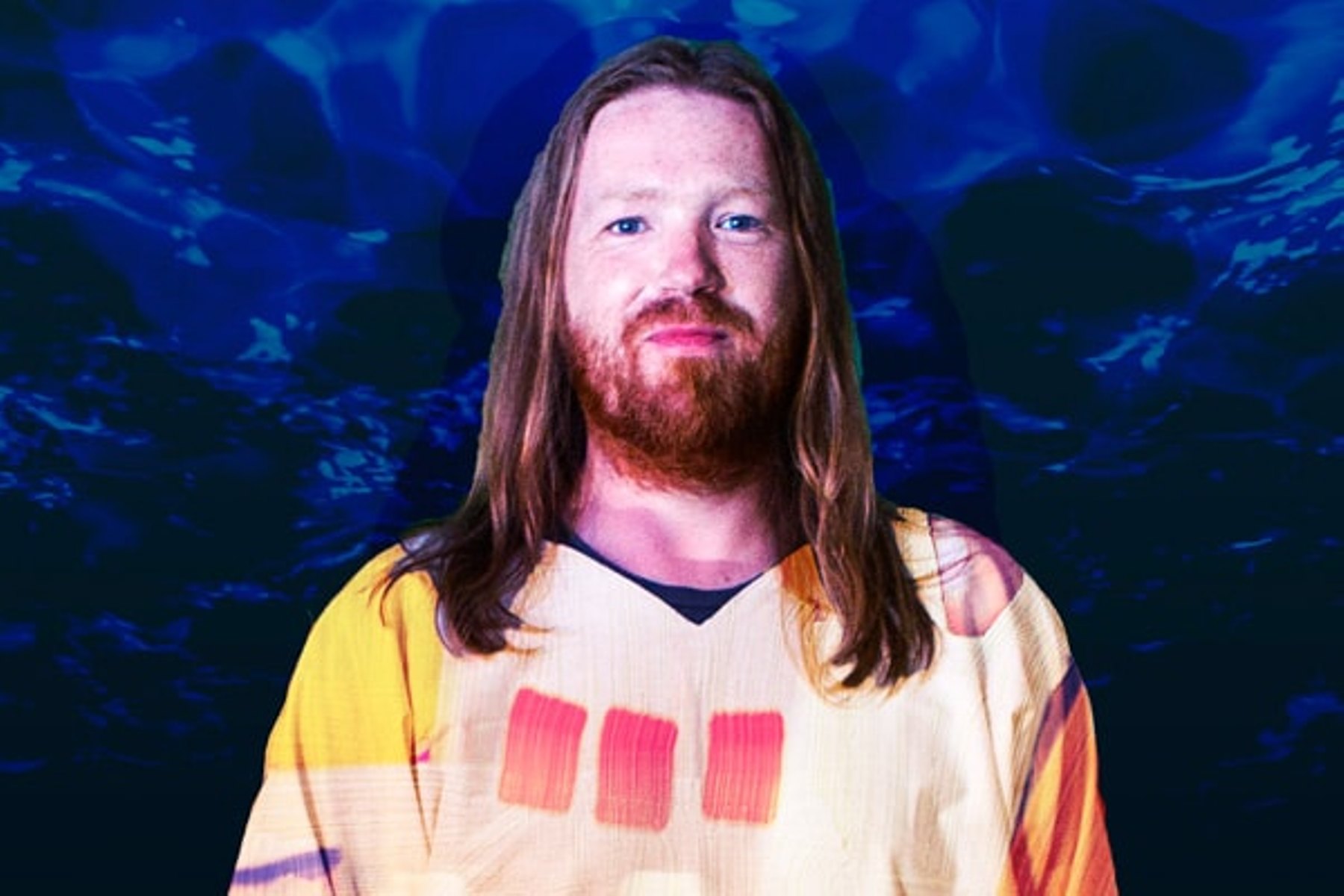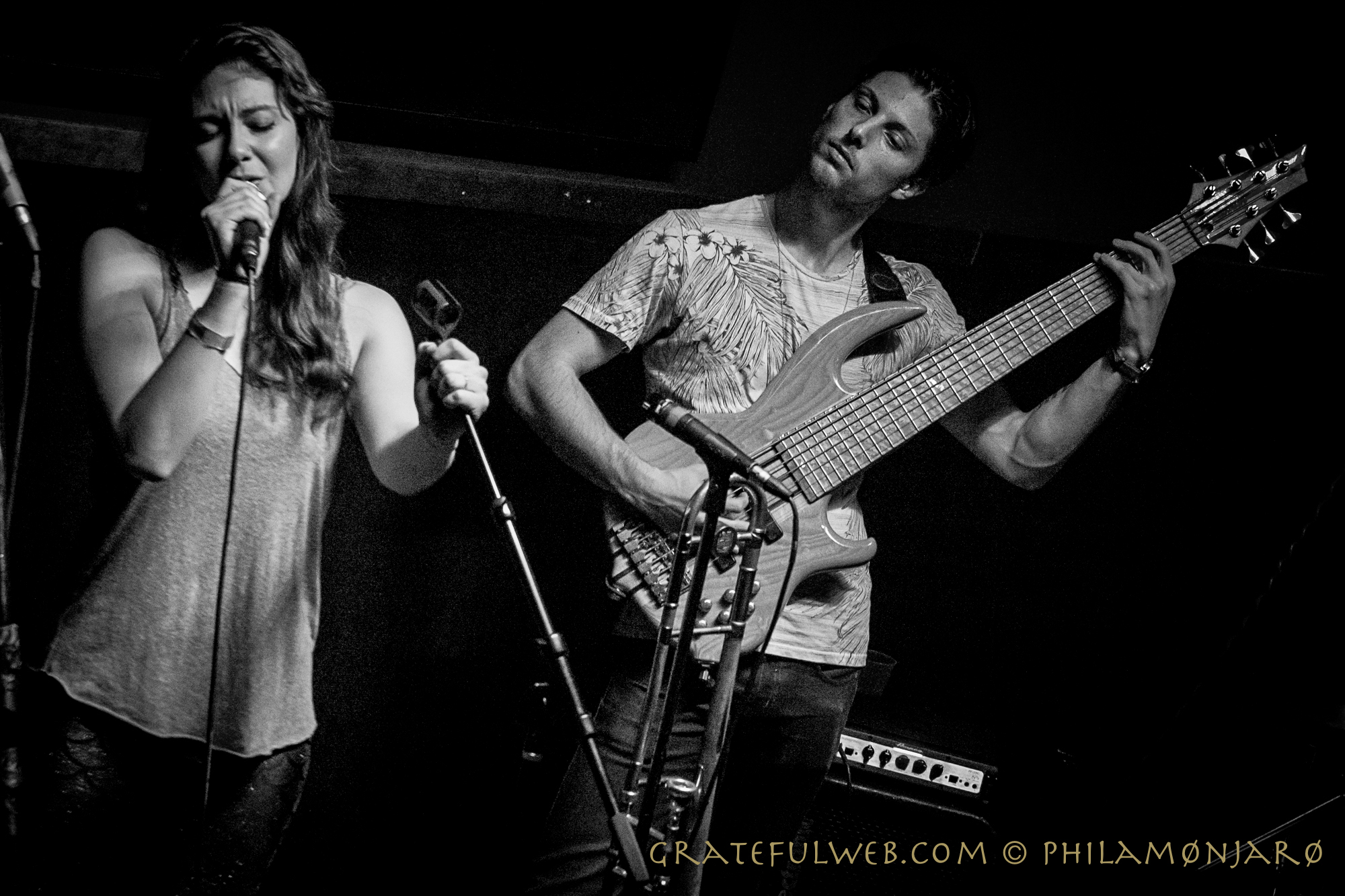While musicians are dealing with canceled tours and extra time on their hands, music director and drummer Adam Chase (Jazz Is Phsh, James Brown Dance Party, Chase Brothers) is picking the brains of some of the most interesting musicians in the jam scene and sharing his findings with us at Grateful Web. This week Chase gets bassist Reed Mathis to dive into the power of the bass guitar.
GW: Can you give us some general info about the Bass guitar?
RM: Bass. I love that word. Say it out loud, "bass." The sound of it tells you a lot about the traits of the instrument. The thumpy "Be" sound, like a finger striking a low string. The long vowel, "Eyyyyyy," like a low note resounding slowly throughout your chest cavity. The gradual tapering off of the "essssss," disappearing inconspicuously leaving space to expect the next sound.
That sound, of course, can also be spelled as "Base." As in the base of a house, or the reliable part of any weight-bearing structure. Or, the base could be considered home plate, where you score, where you're "safe." It could be the base of your argument, the one organizing principle that begins and concludes your passionate logic.
These three homonyms, and the sound of the word itself, tell you just about everything you'd care to know about the instrument & its behavior.
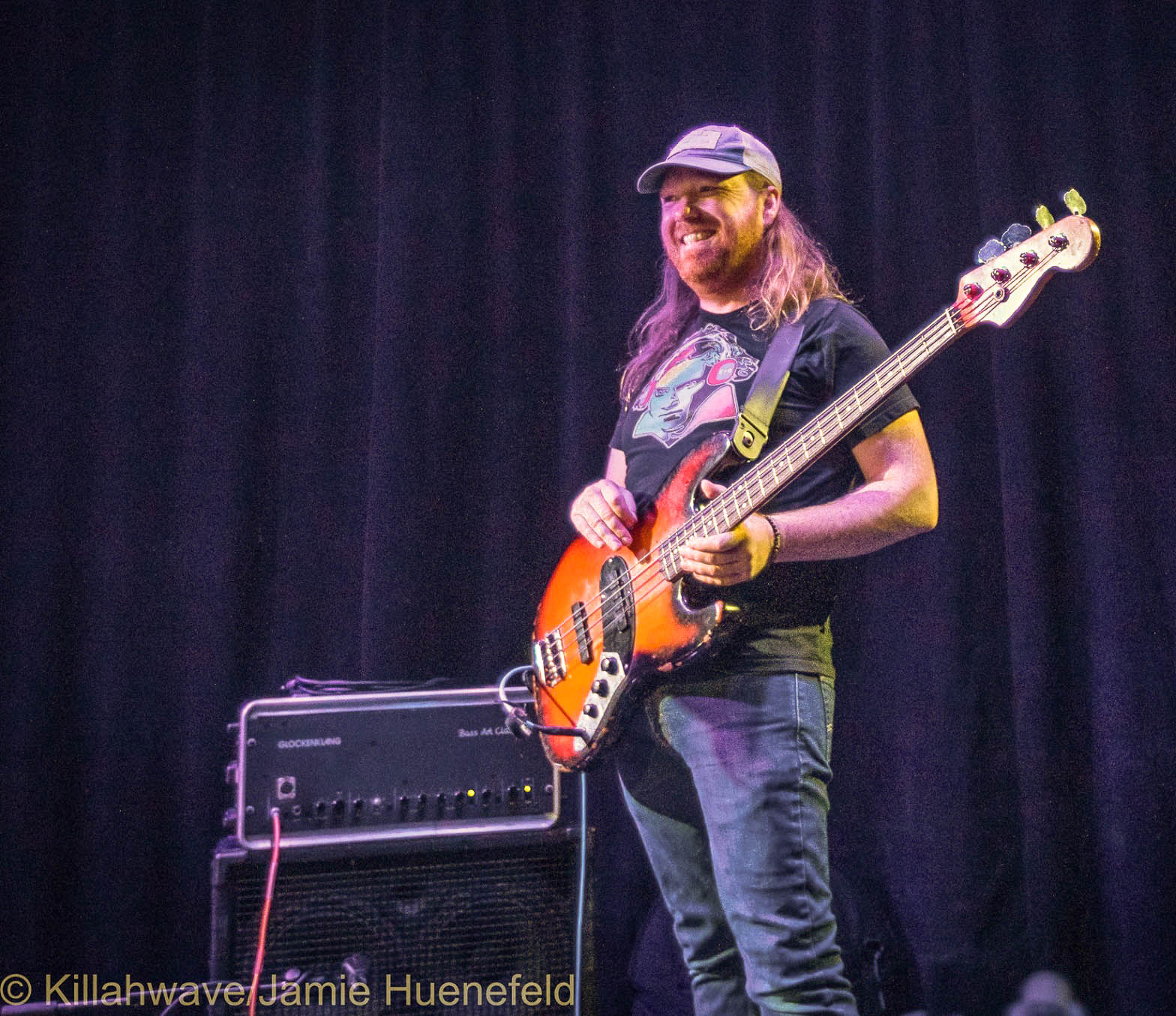
GW: What makes bass guitar so special?
RM: Bass Guitar is unique, in that it is the offspring of both Guitar and Bass Viol ("upright bass"), and yet it is fully neither. It's technically a guitar; you wear it or play it seated, you strum or strike the strings in down and upstrokes, it goes into pickups and then to an amp, it has frets, tuned in fourths, same kinds of fingerings, etc etc etc. And yet, it isn't a guitar.
It's also technically the same-ish instrument as the Upright Bass, they are tuned the same, they make the same pitches in the same positions, occupying basically the same role that the upright bass occupied in pre-1960's swing & Latin music. And yet, it clearly is not an upright bass.
In this way, it's identity is similar to the predicament we modern humans find ourselves in. We are the inheritants and custodians of our ancient nervous-systems and all the primal needs & sensations that come along with it, just as the Bass Guitar fulfills the sonic role of so many of its predecessors down the centuries. But, here in our futuristic now-times we find ourselves adapting quickly to unforeseen circumstances and challenges, and similarly the bass guitar is constantly finding undiscovered lands & new martial arts maneuvers that startle in their sudden novelty.
But the most special thing about the bass guitar, to me, is its ability to envelop the listener's entire body in the comfort & pleasure of a good groove, bypassing our awkward surface differences, and uniting us in the experience of our shared humanity.
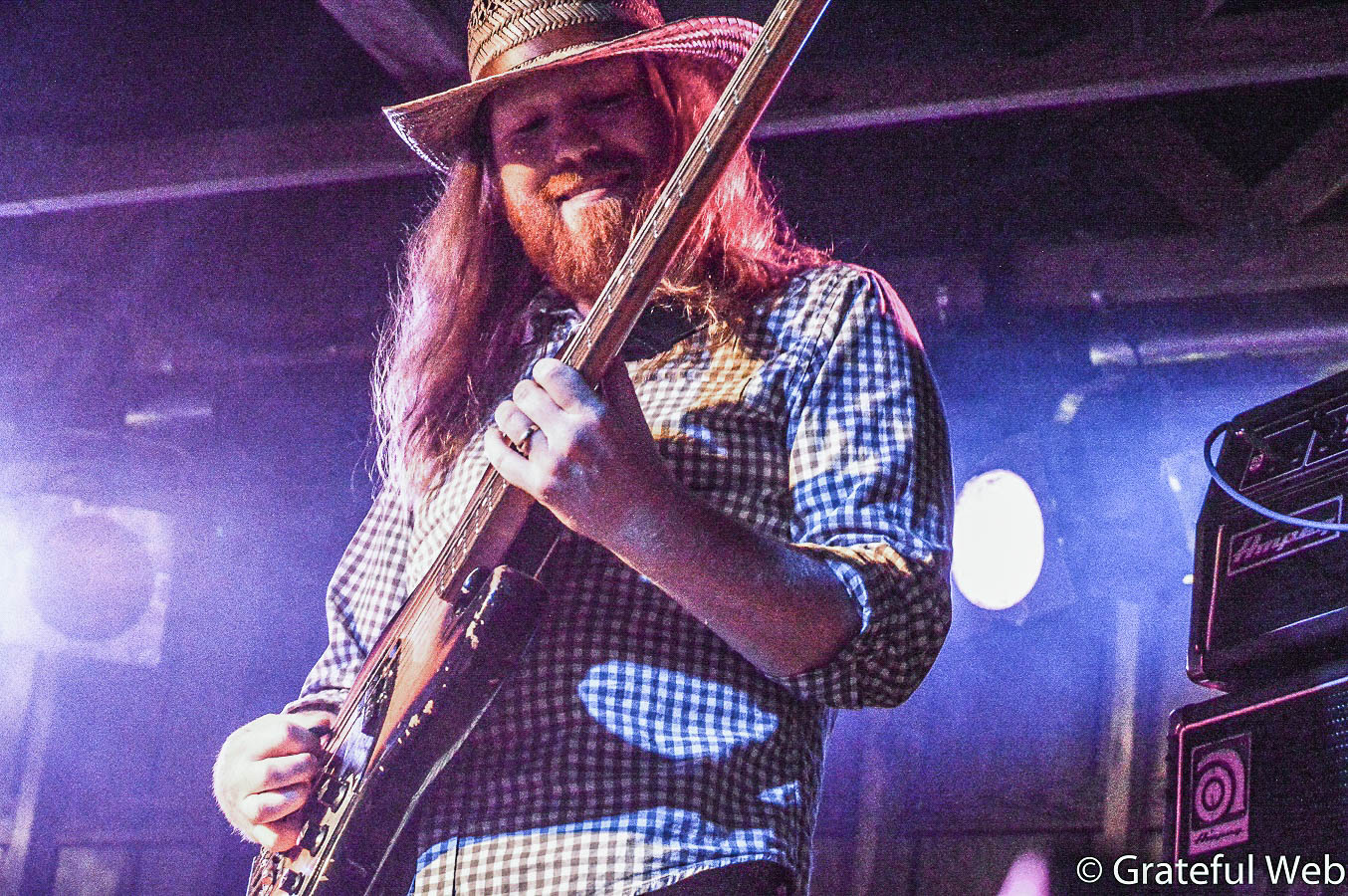
GW: What are examples of shows you may have seen or music you heard where the bass really stood out and moved you?
RM: When I was 16, I got a scholarship to attend the famous Interlochen Arts Academy for 8 amazing weeks. My Uncle John, who had started me on the bass, had attended in the 1970's, and the entire family was excited for me to represent our continuing clan. Well, in a stroke of almost implausibly lucky timing, the International Society of Bassists (who held their semi-annual convention in a different world location each time) had selected Interlochen as the site of their epic gathering. This meant that in addition to the incredible teachers & peers already there, midway through the term Edgar Meyer, Milt Hinton, and Eddie Gomez came for two weeks. They led group classes, and I took part every chance I got.
I didn't learn a ton tho - my interests & background were pretty different from the average student there, and I was admittedly pretty bored and antsy. However, at the end of the session, Edgar Meyer & his piano accompanist did a duo set in the smaller of Interlochen's state of the art concert halls. And I tell you, as I sit here almost 30 years later with still-popping goosebumps, the music that came out of that bass that night... Edgar's bass soared, wept, hollar'd, whispered, danced, cried, joked, leaped and dove like a bungee jumper. My entire body pulsed with excitement and bliss that I have been chasing ever since.
It was truly the most amazing music I have ever seen from the bass. If you want a taste of what he sounded like then, check out his album "Works In Progress" from that year. It's him & the same pianist I saw that night, doing mostly the same tunes. Wild, emotional, daring stuff. Who knows if I would have taken the path I have taken if I had missed that concert? It was one of the two luckiest concerts I have ever attended. The other one was...
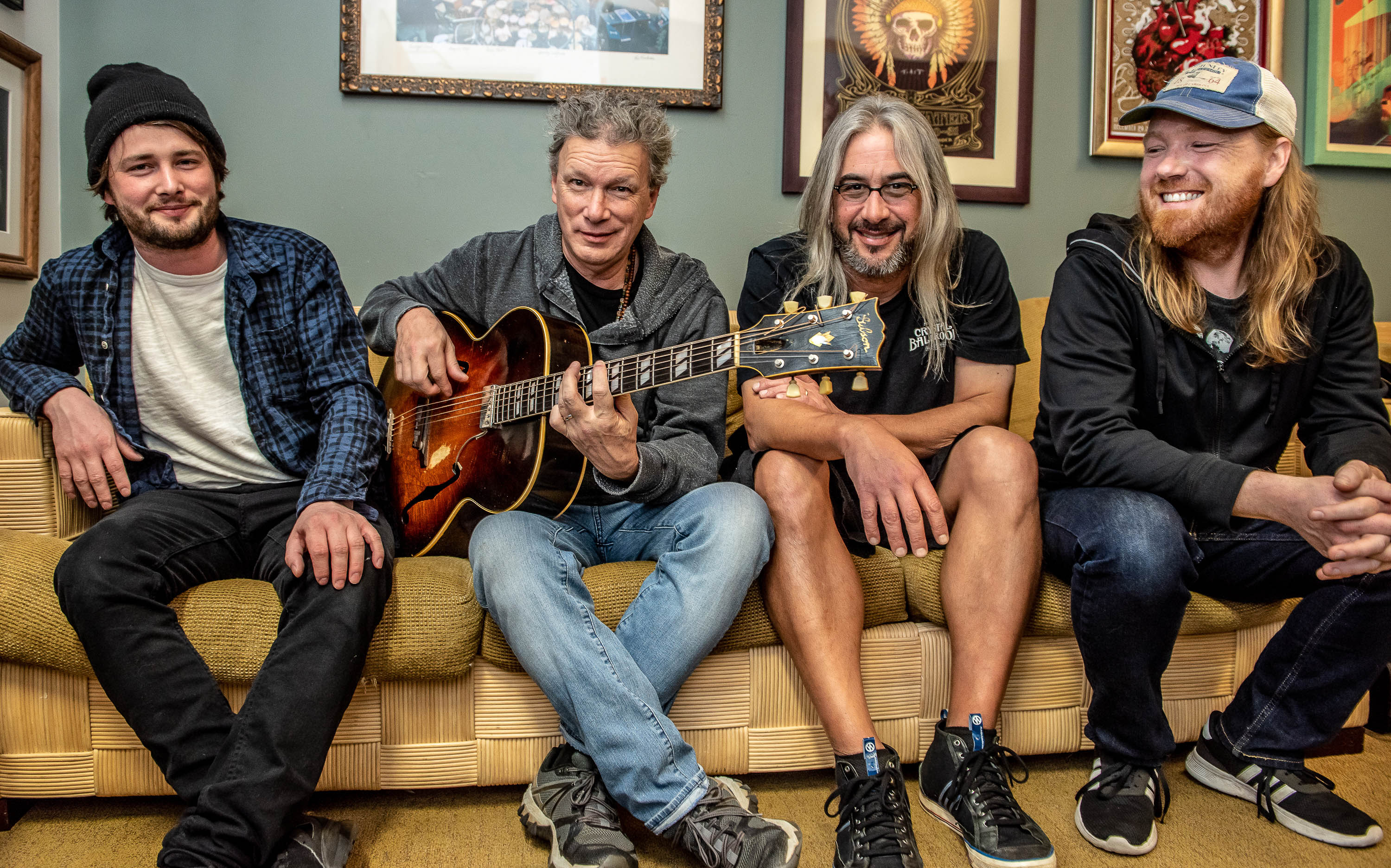
Two years later, I was out of high school, and my band Jacob Fred Jazz Odyssey had just released our first CD, 1995's "Live at the Lincoln Continental." We wanted to tour, so we started reaching out to venues in our region, and soon we landed a Saturday night opening slot, at a jazz club in Kansas City called The Drum Room. Who were we opening for?
"I dunno, some band from NYC. Probably a bunch of square fusion wannabees. We're gonna blow those New York assholes off the stage! Yeah!" There was a lot of bravado talk like that - the 7 of us were all between the ages of 18 (me) and 22 (Sean). I remember walking into the room to load in and seeing Chris Wood for the first time. MMW was sound checking. "Hmmm," I thought. "They're actually pretty good. Ah well. We're still gonna destroy them." Ah, the ignorance of youth. Little did I know I was about to lose my musical virginity.
They finished checking, and I walked on stage and introduced myself to Chris. He was super friendly & chill, and he offered me the use of his amp. "Hahaha no thanks, I'll use mine," I answered, proud to show off what I thought of as my Signature Tone. (Jesus, 18-year-olds are cocky!) Well, at around 8:00 Jacob Fred took the stage, and we ran through our set of hyper, fast, dense, nervous, angry, odd-metered, dissonant attempts at what we thought was "funk." MMW sat at a table in the front, stone-faced, and watched our entire set. "Yeah," I thought, "how ya like THAT, new york?!?" We finished up and left the stage, smug in our supposed triumph. The audience dug us, and the MMW guys were soft-spoken but complimentary, and I felt like they meant it.
I am not sure how to begin to describe what happened next. I liked hip-hop, but outside of the Beastie Boys I hadn't really thought of that as a style that was available to me. I also liked free-jazz, but I thought of it as outrageous & novel. Not as.......... Jeez, what can you say about it? Jedi behavior. Dark healing magic from the center of the earth. Conjuring dragons and then slaying them.
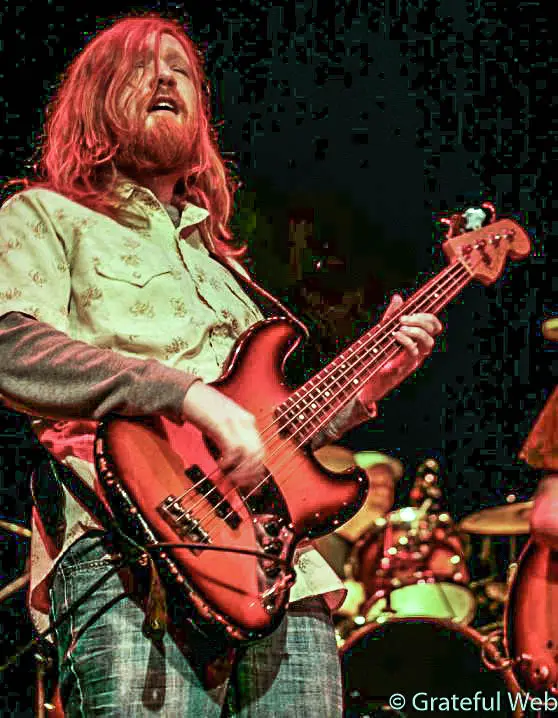
The grooves were SO LARGE, so hypnotic. Chris Wood stood center stage, towering above the room, with an upright bass that sounded so rich, so enormous, it was like standing on the ocean floor. He was playing 1 note for every 10 notes I would've played. The simplicity, the confidence.......his playing was so evolved and masterful that it appeared to be silently mocking me, shattering my idea of what Bass is, what Bass is for, what Bass is capable of....honestly it was like an atomic bomb, telling me that my childhood was over, and it was time to become a man and put away childish things. Chris & Medeski & Martin were so effective, so modern, so passionate, so mysterious..... I distinctly remember thinking "I'm seeing Hendrix in '67......I'm seeing Bird & Dizzy in '45, I'm seeing Coltrane & Elvin..." It felt like witnessing history. They weren't "on fire," they were fire.
Later I learned that a couple of nights earlier, they had opened for Phish in Austin, TX, and sat in with Phish, and then Trey Anastasio had shown up at their MMW after-show and sat in for a whole set.
This avant-groove jazz trio, that had been playing for handfuls of art fans in tiny rooms like The Drum Room in Kansas City, had struck a gushing oil well, just a few dozen hours before we first saw them. We (& the rest of the tiny audience that night) were witnessing the actual moment when this incomparable team of Master Musicians was pivoting on the Energetic Axis Point that would determine the rest of their career. The fan base that would allow them to comfortably explore their premise for decades to come literally began that weekend.
The blast of light hit me full in the face and erased everything I thought I knew about human music. I have spent the last 25 years exploring the remnants of that Big Bang. Thank you, Chris Wood.





